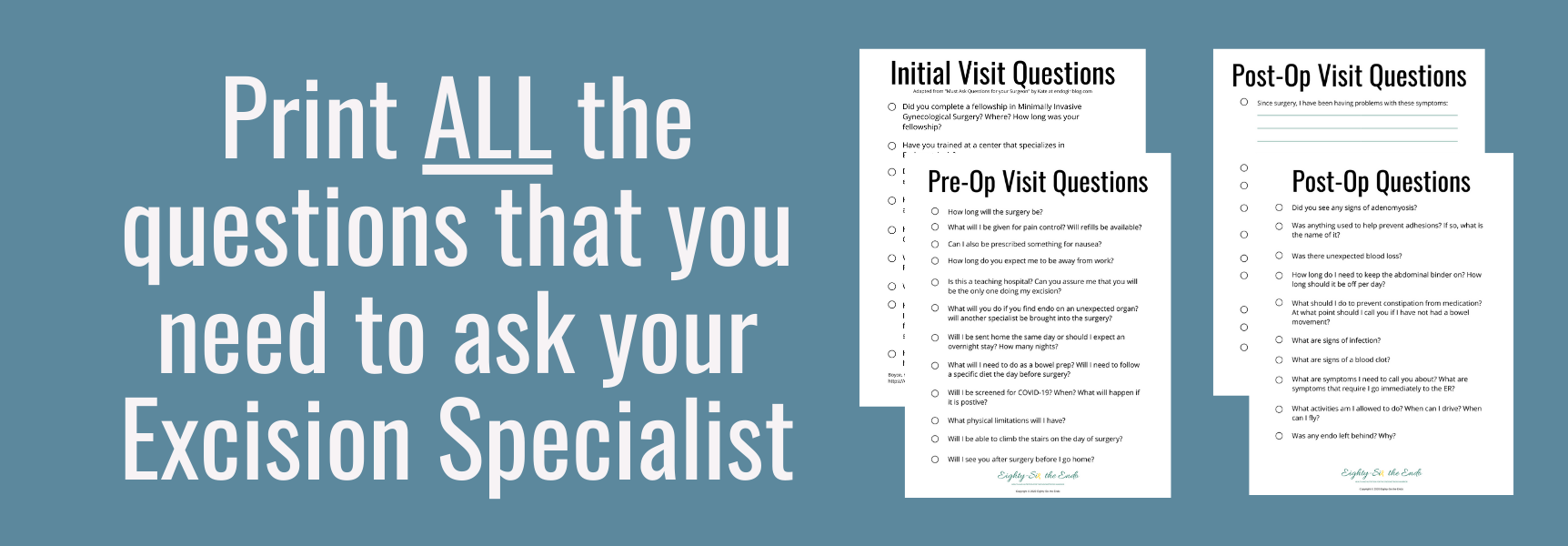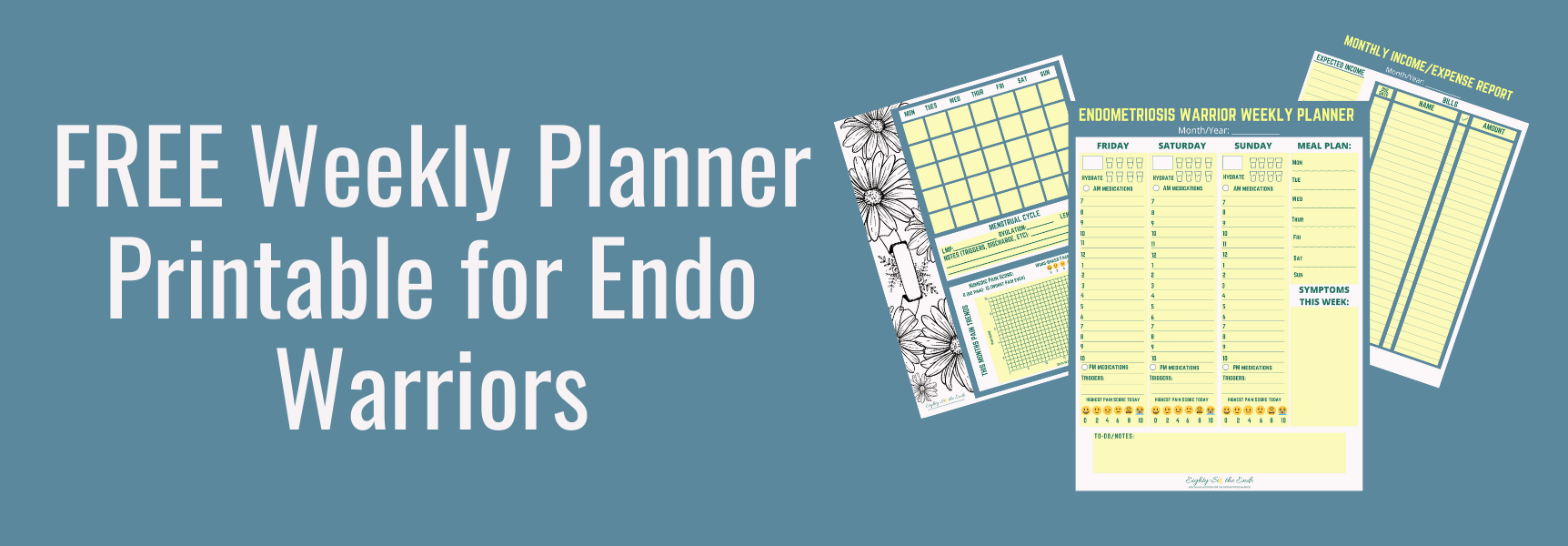Disclosure: This post may contain affiliate links. I earn from qualifying purchases. This comes at no extra cost to you and I only recommend products that I believe will be valuable to my audience.
We are entering a new age of empowerment when it comes to female rights, education, and research. With that, has come the Menstrual Movement; a movement where women and girls are fighting the stigma associated with menstruation. For example, recently I learned of a group of young girls who starting a podcast to combat the stigma associated with women’s health issues. The fact is, menstruation is a NORMAL part of life and there is NOTHING to be ashamed of! Which is why I have to commend Traditional Chinese Medicine Practitioners who have given the period a name that is very deserving. They call it Heavenly Water.
Doesn’t that sound so nice? If only endo warriors could describe their periods as heavenly. Instead we are faced with severely painful periods that affect all aspects of daily life. It causes depression. It breaks up friendships, romantic relationships, and even stops people from being able to maintain a job.
I know this because I have gone through the many struggles associated with endometriosis. And so, I devote my spare time to learning about anything related to holistic health for the Endo Warrior.
Traditional Chinese Medicine
 I have recently become more and more fascinated by TCM and the practices that have kept hunter-gatherers healthy throughout centuries. It is incredible that we live in a world filled with so much innovation, yet ancient healing practices still remain tried and true.
I have recently become more and more fascinated by TCM and the practices that have kept hunter-gatherers healthy throughout centuries. It is incredible that we live in a world filled with so much innovation, yet ancient healing practices still remain tried and true.
But what has really caught my attention is the perspective that TCM has on menstruation. So, today, I’m sharing some key notes I took while reading Dr. Xiaolans Zhao’s Book called Ancient Healing for Modern Women: Traditional Chinese Medicine for All Phases of a Woman’s Life.
And although I am not an expert in TCM and have not tried all these recommendations, my goal is to always share what I have learned in hopes that it will benefit just one person.
Heavenly Water
Menstruation is not something that holds a negative stigma in Traditional Chinese Medicine, aka TCM. Instead, it’s been given a name that represents the “Essence”, or Jing, “that is needed to live” (p.55).
It is discussed by both males and females without hesitation. And fathers are often very aware of the foods that their daughters should eat to maintain a balanced Qi (pronounced Chee).
Mind-blowing, right?!
Why is it that western cultures have gone centuries viewing menstruation as dirty? Men and women, alike, have even given it alternative names just to avoid saying the word period (i.e. The Rag, Aunt Flo, etc). Let’s stop the madness people! It’s called a period. Period.
PMS or Qi Disturbance
Even if you have never studied TCM, you are still probably familiar with the concept of Qi (“chee”). But do you really know what it means? In Dr. Xiaolan Zhao’s book, Ancient Healing for Modern Women, she describes Qi as “the energy that creates life, our vitality, the vital force that underlies our bodies, minds, hearts and spirits”(p.18).
Basically, if one aspect of the body, mind or spirit is not taken care of, then there will be an imbalance of Qi.
So, instead of being disregarded as a syndrome (i.e. premenstrual syndrome), symptoms like bloating, cramps, mood changes are viewed as a “stagnation of Liver Qi” (p. 61).
Of course, due to its integration of the mind, body and spirit, TCM focuses on all areas of health. So, it’s important that self-care be addressed, especially during Heavenly Water.
Heavenly Water: Self Care
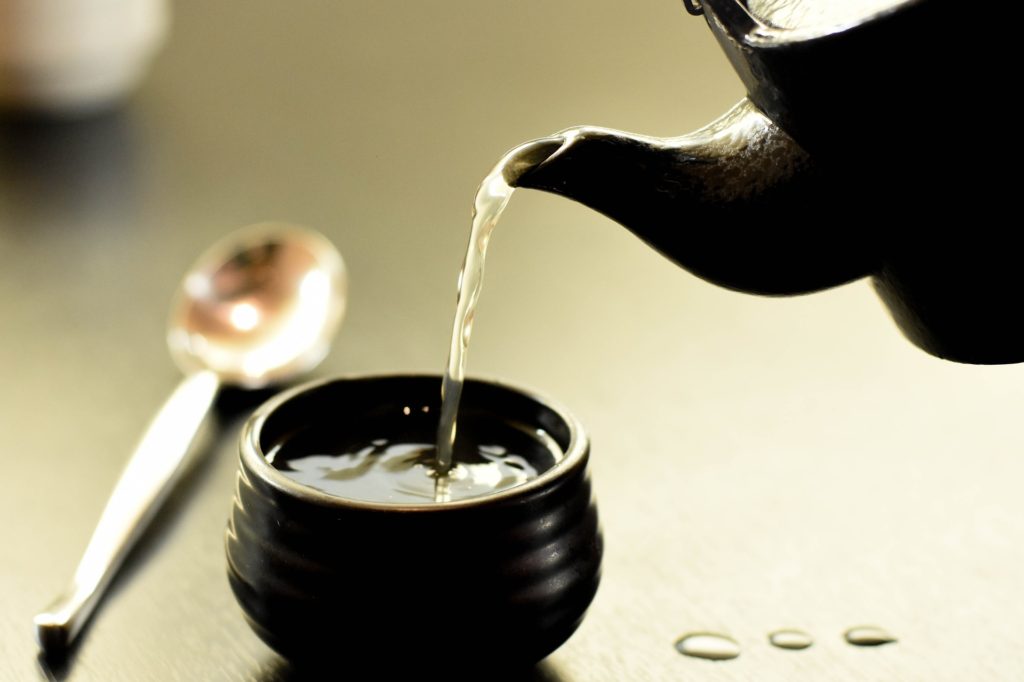
1. Diet and Qi
During Heavenly Water, there are many foods that should be avoided to prevent the stagnation of Liver, kidney, and Spleen Qi. These are all heavily associated with the unwanted symptoms that so many of us experience.
Foods to avoid include:
- cold foods and fluids
- coffee
- alcohol
- spicy foods
- large amounts of red meat
- fatty, fried, and greasy foods
- high salt intake
- high dairy intake
Foods that can help balance Qi during Heavenly Water:
- Dark green leafy vegetables
- Liver
- Poultry
- Sweet Rice
- Fish
- Eggs
- Raisins
Egg Soup
Ingredients
- 1 cup water
- 1 tbsp raw cane sugar
- 2 eggs
- 3 tbsp’s rice wine
Instructions
- “In medium saucepan, add 1 cup water and raw cane sugar. Bring to boil over medium-high heat.”
- “Crack 2 eggs into boiling water, and bring to boil. Add rice wine and turn off heat. Serve hot.”
Sweet Rice Congee
- 6 cups water
- 1 cup black sweet rice
- 1/2 cup dried longan fruit (available at chinese grocery stores)
- 10 dates
- 2 tbsp’s raw cane sugar
- 1/2-inch piece fresh ginger; peeled and thinly sliced
Instructions
- “In a large, heavy saucepan, add 6 cups water, black sweet rice, longan fruit, dates and raw cane sugar. Bring to a boil over medium-high heat. Reduce heat and simmer for 2 hours, stirring occasionally. The finished congee will have the consistency of soup. Ladle into a bowl and sprinkle with ginger slices.”

2.Exercise and Qi
Many female athletes can experience irregular periods or go months without having a period. When viewed through the lens of a TCM practitioner, this can be due to “loss of fluid that can drain Qi and cause Blood Deficiency, which in turn has a negative effect on the flow of our Heavenly Water”(p. 85).
And so, it is not recommended that women undergo vigorous exercise during their period. However, TCM recommendations still value activities that help us mindfully deal with our emotions in a physical way.
Two highly recommended activities mentioned in Ancient Healing for Modern Women, are Tai Chi and Qi Gong. “Qi Gong and Tai Chi cultivate our bodies through physical movement and develop in us acute mental awareness” (p.90).
In the book, a medical doctor practicing Western Medicine struggles with symptoms secondary to Stage IV Endometriosis. However she soon found mental and physical healing once she decided to practice Qi Gong every day.
And although I have not yet tried Qi Gong, I have found an immense amount of relief through yoga, which is another form of meditation involving movement. What’s important is that you find something that you can connect with and experience balance with.
3. Herbs to Support Heavenly Water
Traditional Chinese Medicine and Herbal Medicine are commonly intertwined. This stems from the fact that they are both rooted in practitioners who are hunter-gatherers.
One beneficial TCM herbal supplement is “Wu Ji Bai Feng Wan, or Black Chicken White Phoenix pills” (p.93). This powerful patented herbal pill helps strengthen Qi and enrich blood. It is taken to help “treat abdominal pain, vaginal discharge and sore breasts” (p.93).
Another patented herbal pill is Xiao Yao Wan; which can help “relieve pain from menstrual cramps and ease emotional distress, irritability and mood swings” (p. 94).
NOTE: Talk with your physician or a licensed TCM practitioner before starting any herbal supplements.

4. Sleep and Qi
Just as western medicine stresses the importance of adequate sleep, so does TCM. However, Traditional Chinese Medicine takes it one step further by integrating the seasons with recommended sleep patterns.
According to TCM, we should follow a sleep pattern that coincides with the longer summer days and shorter winter days. As in, we should rise early and stay up late during the summer season. But during the winter, we should rise later in the morning and go to bed earlier.
“In doing this, we will resonate with the Yang energy of summer and the Yin energy of winter” (p.95).
5. Managing Period Pain with TCM
Pain management is important across all areas of medicine. There is so much science supporting the idea that healing cannot occur when the body is experiencing pain. And as an Endo Warrior, I can attest to that.
A common TCM intervention used to decrease period pain involves the use of castor oil. Massaging warm castor oil to the lower abdomen can provide relief from painful period cramps. This is due to the natural anti-inflammatory properties found in Castor Oil.
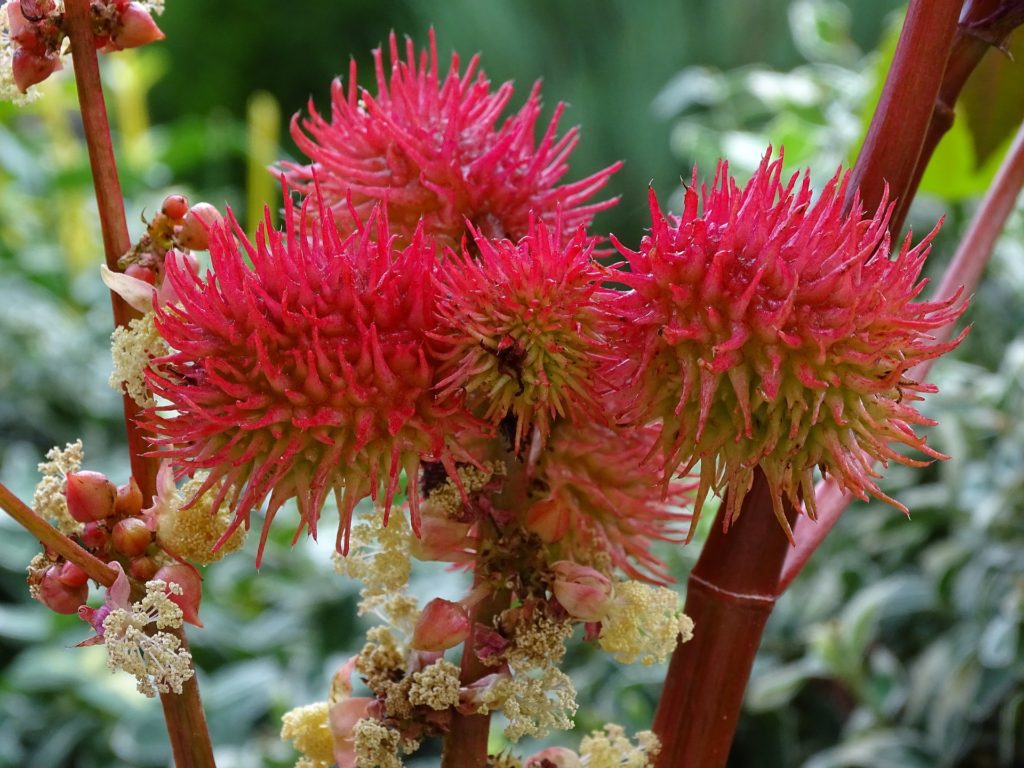
The interventions recommended by Dr. Xiaolan Zhao, C.M.D., fascinate me. I truly believe that Traditional Chinese Medicine can be safely integrated with conventional medicine to support and treat chronic illness. It essentially comes down to what you are comfortable with and what you are willing to try.
However, I advise you to seek out the guidance of a licensed and experienced TCM practitioner if you want to start navigating the world of Traditional Chinese Medicine.
Many herbs and supplements are known to interfere with pharmacological agents. Licensed TCM practitioners can help you find safe products that may work for you and your individual needs.
To find a practitioner near you, visit the National Certification Commission for Acupuncture and Oriental Medicine.
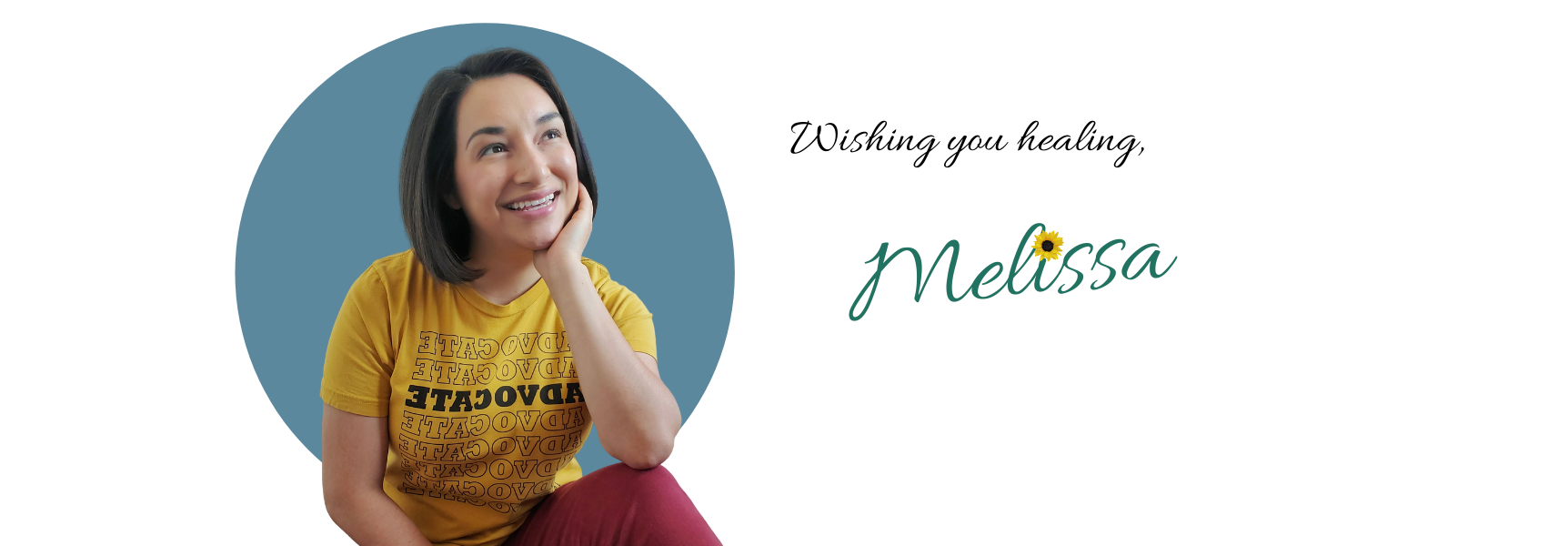

- Zhao, X. (2006). Ancient Healing for Modern Women: Traditional Chinese Medicine For All Phases of a Woman’s Life. New York, NY: Walker & Company.


